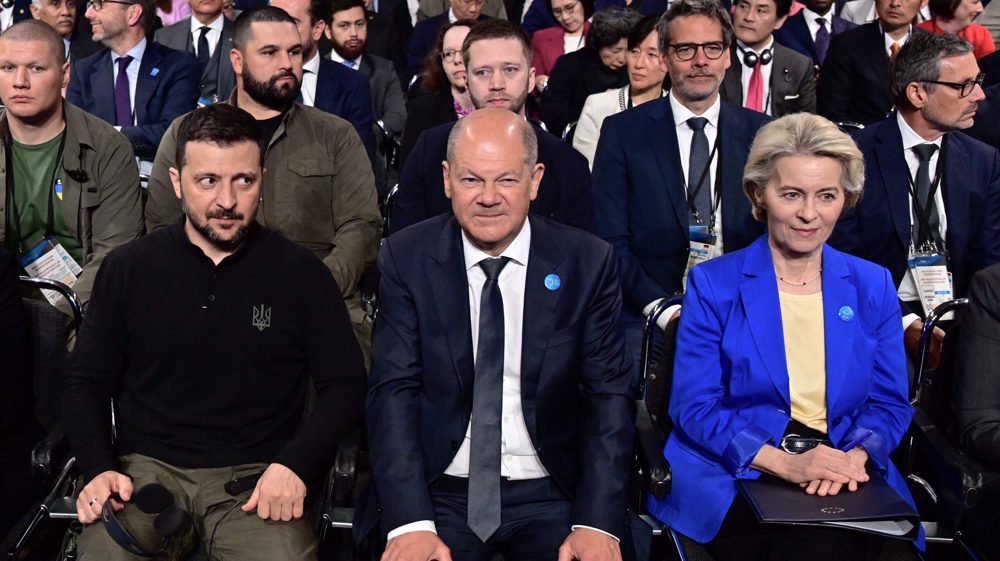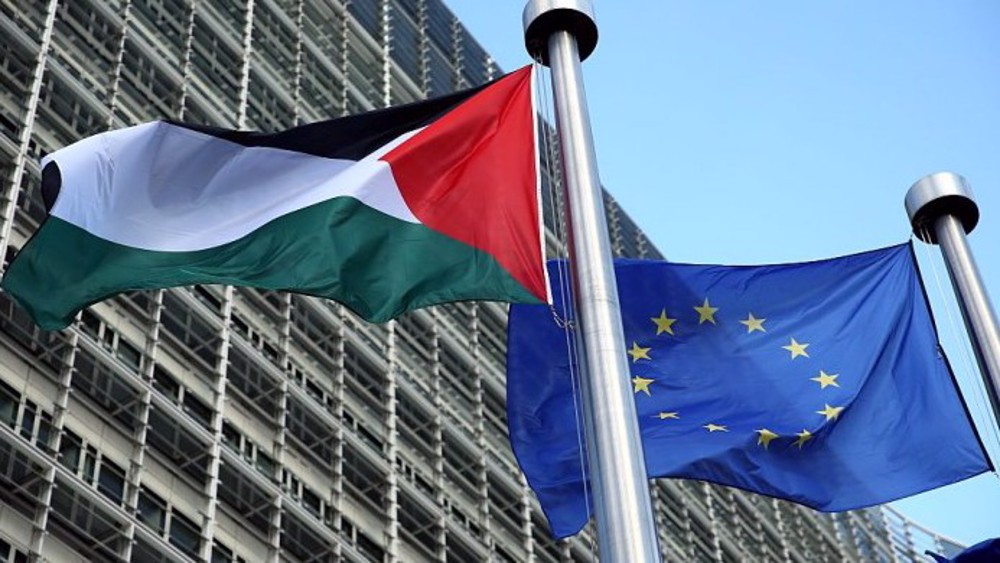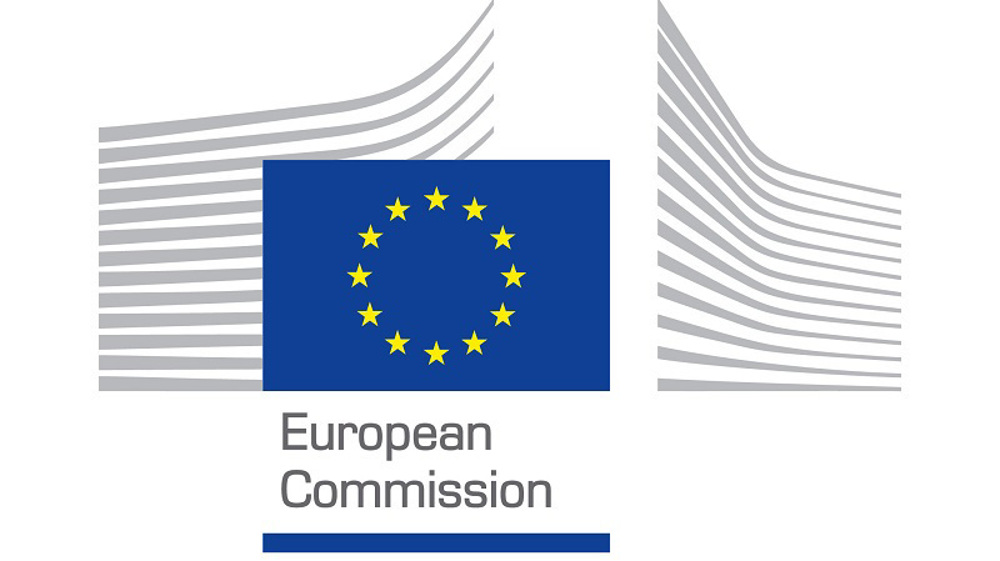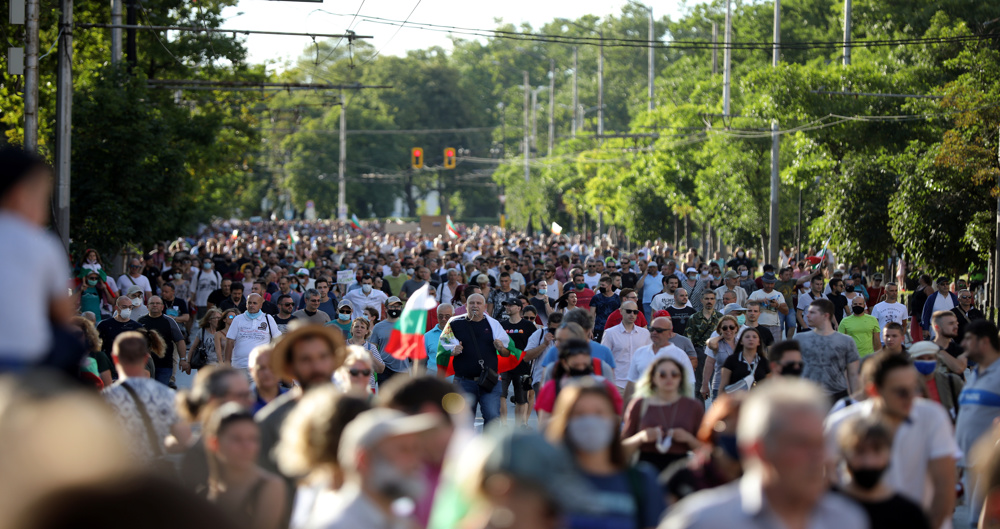Bulgarian PM bids for fourth term in COVID-hit vote
Bulgarians voted Sunday to elect a new parliament with Prime Minister Boyko Borisov's center-right party tipped to finish first although it may struggle to find coalition partners.
Bulgaria is holding the poll while battling a third wave of infections that has seen hospital admissions spike.
Voting booths were set up in hospitals and poll workers also took ballot boxes to voters in quarantine.
Amid fears the pandemic could keep voters away, the electoral commission said that turnout was just under 40 percent at five p.m. local time (1400 GMT), down from 42.74 percent at the same stage during the last parliamentary elections in 2017.
Support for Borisov's GERB party -- in power almost uninterrupted for close to a decade -- has been eroded by a series of scandals, with protests last year accusing the government of protecting oligarchs.
Eve-of-ballot opinion polls gave GERB 28-29 percent of the vote, or an estimated 75-76 seats in the 240-seat legislature.
"I have always taken into account what the people decide... let the elections be honest," Borisov said after casting his vote in the absence of journalists.
"The immense support we received from our counterparts in Europe shows the importance of a stable European government in Bulgaria," he said in a statement on Facebook.
President Rumen Radev, who supported last year's anti-government protests and has been a vehement critic of Borisov, said he had "voted against the destruction of the rule of law."
"These elections are a step towards returning to normality," he added.
'Fragmented opposition'
Up to six other parties are expected to win seats in the parliament, said political analyst Antony Todorov, making it difficult to form the next cabinet.
"It's the absence of an alternative due to the fragmented and unconvincing opposition that explains GERB's hegemony," he added.
Stela Georgieva, 78, was one of those taking advantage of mobile ballot boxes and told AFP, "I hope younger people enter government to bring about change."
Krasimir Slavchev, 43, braved the rain outside a Sofia polling station.
The number of voters was being keenly watched and will likely define the strength in the legislature of the new faces who have emerged from the protests.
Virus fears could also impact the fortunes of the main opposition Socialists in particular, whose older electorate is considered more likely to abstain.
With 20 to 22 percent of intended votes, the Socialist party is likely to garner 54-56 seats.
The right-wing Democratic Bulgaria coalition, whose leader Hristo Ivanov encouraged the protests, and the Stand up! Mafia out! left-wing coalition, close to Radev, are set to garner five-six percent of the votes and end up with 13-17 lawmakers each.
Ivanov said Sunday he was hoping for a "parliament with more legitimacy to launch a debate on change".
Bringing up the rear is GERB's current government coalition partner, the nationalist VMRO party, which will most likely manage to cross the four-percent threshold to enter parliament after an aggressive campaign of anti-Roma and anti-North Macedonia rhetoric.
Voting stations were to close at eight p.m. (1700 GMT) or no later than nine p.m., if there are queues. Exit polls are expected shortly after.
First partial official results, usually expected late Sunday night, might be delayed due to the introduction of machine voting along with the usual ballot paper voting in the majority of big polling stations.
The central electoral committee is due to release official results by Thursday.
(Source: AFP)
VIDEO | Press TV's news headlines
July 26: ‘Axis of Resistance’ operations against Israeli occupation
Palestinian resistance fighters hit Israeli Merkava 4 tanks
VIDEO | UK police brutal assault on Muslim family sparks outrage, protests
Hamas: Death of leader in Israeli jail amounts to murder
EU sends €1.5 billion to Ukraine from frozen Russian assets
VIDEO | Millions of Yemenis rally for Gaza, call for more anti-Israel operations
UN chief calls for Olympic truce as games begin in Paris












 This makes it easy to access the Press TV website
This makes it easy to access the Press TV website